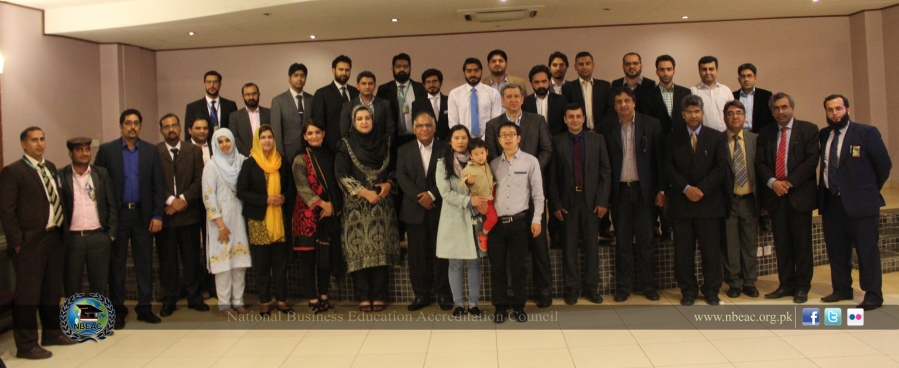Reaccreditation
Reaccreditation Visit - Lahore Business School, University of Lahore

Venue: Lahore Business School, University of Lahore | City: Lahore, Pakistan
NBEAC Accredited business schools renew their accreditation every two to three years after the initial accreditation, by performing the same self-assessment and gap analysis required for the initial accreditation application. Once the foundation is set the reaccreditation becomes a much simpler process.
With regard to this, NBEAC successfully completed a reaccreditation Visit at the Lahore Business School, University of Lahore on the 9th, 10th and 11th of March 2017. After the warm welcome by the Patron, a brief discussion was held on the unique aspects of accreditation. The University tour was followed by six sessions on NBEAC standards with the Dean, Director and HoD’s of Lahore Business School on the first day. The objective of this visit was in-depth review of the Business School based upon the nine key standards of NBEAC.
The three day extensive review involved meetings, discussions and interviews with management, faculty, students, alumni, Industry representatives, support staff, and observing the course delivery methods. The objective of Peer Review Team (PRT) is to make recommendations through gap analysis for the improvement of Business School.
The Peer Review team comprised of Dr. Shahid Mir, Director QEC, IBA Karachi (Chairperson), Dr. Naukhez Sarwar, Dean & Principal, NUST Business School, NUST Islamabad, Dr. Nadeem Khan, Associate Professor, PIDE, Islamabad, Dr. Fareeda Saleem, Assistant Professor, Fatima Jinnah Women University, Rawalpindi (from previous panel), Mr. Usman Tahir, Director Advisory Services, Grant Thornton Consulting, Lahore (Industry Representative) and Mr. Ahtesham Ali Raja (Program Director NBEAC).
A detailed report along with the accreditation decision will be communicated to the Institute after the next meeting of the council.
Lahore, Pakistan
Map
Powered by iCagenda
About NBEAC
NBEAC has three main functions: accreditation, training and networking. In its accreditation function, it develops and implements standards to improve the quality of business education in Pakistan. In its training function, it provides opportunities to faculty and managers to learn about quality standards and related matters. In its networking function, it provides a forum for business education professionals to learn from each other through conferences and seminars.


